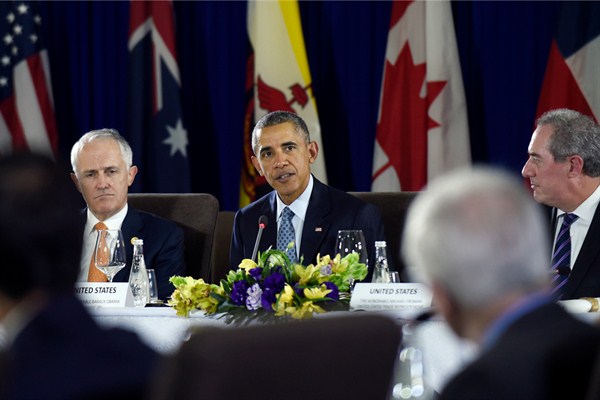As a U.S. presidential candidate in 2008, Barack Obama had strong reservations about free trade. Back then, he referred to the North American Free Trade Agreement, or NAFTA, as “unfair” and pledged to renegotiate the deal. But as president, Obama has adopted the traditional bipartisan orthodoxy in Washington on free trade.
What’s more, his administration has aggressively pursued two mega-regional trade initiatives: the Trans-Pacific Partnership (TPP) with 12 Pacific Rim countries and the Transatlantic Trade and Investment Partnership (TTIP) with the European Union. As the Obama administration draws to a close, though, free trade has become a poisonous issue in the current American presidential campaign, making the future of Obama’s trade legacy increasingly uncertain.
Although initially a reluctant free trader, Obama quickly embraced international trade. During a summit with the leaders of Canada and Mexico in 2009, Obama reversed his pledge to renegotiate NAFTA, citing the economic downturn in the wake of the global financial crisis as a justification. His administration also inherited from the Bush administration the negotiations for the TPP, the largest regional trade deal in history, which notably excludes China.

